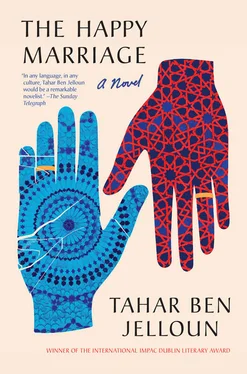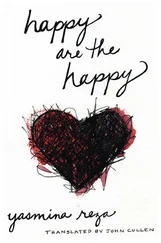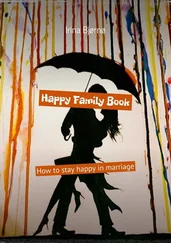Light was scarce in the medina of Fez. When the weather was good, he would go up to the rooftop of his parents’ house and sketch whatever he saw. It had been difficult at first and he would tear up his sketches and start all over again so he could reproduce as accurate a portrait of the city as he could manage. All the houses looked alike: they were cube-shaped and fit together like the jagged pieces of a jigsaw puzzle. He had to go beyond those appearances and re-create an atmosphere. Aged ten, he’d dared to show his teacher a drawing that he’d thought had turned out well. The teacher had encouraged him and had given him a box of colored pencils at the end of the year.
Drawing had been a form of escapism for him, allowing him to experience the world in a different way. One of his neighbors had been a very pretty deaf-mute girl called Zina. Neither of them had known sign language, so he’d communicated with her through his drawings. He had spent whole afternoons making drawings for her so he could tell her sweet things and allow her to dream. He’d drawn portraits of her entire family for her. It played a decisive role in the development of his future technique. The desire to communicate with her had obliged him to become a creator. Once he would return home, he would draw stories for her that he would offer her the next morning. He’d been very sad the day when Zina’s parents had left Fez to go live in Casablanca. She had promised she would send him her new address. He’d waited a long time, but had never heard from her again. The memory of Zina made him smile, since she was definitely the first girl he’d ever fallen in love with, when he’d been just ten years old … After a few months of fruitless waiting, he burned all the drawings he’d ever made for her so he could forget the whole story. Now he regretted having done that, but he comforted himself with the knowledge that they’d probably been poor drawings …
He looked at the alarm clock that lay on the rolling table where he used to store his brushes and colors when he could still paint. 11:45 p.m.: time for his injections and medications. Imane, his nurse, a brunette who moved gracefully and whose eyes were full of kindness, entered the room and immediately started looking after him. Always discreet and affable, she came to see him three times a day. He called her “Faith,” which was what her name meant in Arabic. This amused the young woman and made her smile. She’d been recommended to him by one of his friends who was a doctor: “This is someone you’ll have to spend a lot of time with, so as long as that person is competent, you also want them to be nice and even pretty. It’s important to surround yourself with people who are easy on the eyes! As I know that you like women, this one won’t displease you, especially since your relationship will be purely medical. She comes from a good family and is probably still a virgin. At least there are silver linings after the accidents in our lives!”
He would impatiently look forward to each of Imane’s visits. It was a special moment because he found her presence soothing. She took to her work seriously and yet was still sweet. One day, he asked her if she had a boyfriend. She smiled and said: “Next time, during my break, I’ll come and tell you all about me, and if you like, I can read to you in both French and Arabic!” The painter thought it was an excellent idea. It would be a good opportunity for him to plunge back into Baudelaire’s essays on Delacroix, whom he loved a great deal, and discover what the new biography of Matisse had to say. Once she finished her work, Imane had slipped away as quietly as she’d come.
When it was time for lunch, his two assistants carried him to the dining room where they fed him like a baby. It was the most unbearable time of day for him. The doctor had told him he would recover the use of his right hand within a few weeks. It was just a matter of time and patience. But nothing had happened yet. He ate very little, not so much because he wasn’t hungry, but because he didn’t want to go through the ordeal. To see himself so clumsy and weakened made his spirits sink. He took every sip like a dehydrated old man because he was afraid he would swallow askew. It was a problem he’d inherited from his father, and it happened to him very often, which could be fatal in his situation.
The bathroom still hadn’t been modified so that he could use it by himself. It was Eid al-Adha, and the country had come to a standstill. The plumber was waiting for his workers to return from their villages in the countryside and get back to work. The mason couldn’t be reached. The painter had disappeared. The feast of the sacrifice was an opportunity for millions of Moroccans to eat meat, and nobody wanted to miss out on it. It was a holiday that small and medium-size businesses feared the most, since all economic activity simply ground to a halt. The timing of the holiday had been terrible for the painter, too. After lunch and a brief pit stop in the bathroom, he took a long rest. He needed it, since the mundane activities of life cost him a great deal of effort.
As they were laying him on the bed so he could take a nap, the painter recalled a conversation he’d had not long ago with his oldest son: “Where do you want to be buried, Dad, in France or in Morocco? Do you want to be wrapped in a white shroud or put into a coffin while wearing a nice black suit? Do you want people to visit your grave, or do you not care one way or the other? In any case, you won’t know anything, won’t know who comes to see you or not, so I guess it’s all the same to you, eh? I wouldn’t want you to be cremated, I’ve seen that in films, it’s terrible. Regardless, I think cremation is against Islamic tenets, isn’t it? Well, I’ve asked you a lot of questions, but you know that I want you to live for a long time, a very long time. I love you, Dad. But please let me know about your choice of country and the shroud, all right?”
The painter had replied: “There’s nothing to think about, my son, I’ll be buried in Morocco. But no black suit! What bothers me is how dirty our cemeteries are, you saw them when we went to visit your grandparents’ graves, how disgustingly unhygienic they are. There were empty bottles and plastic bags everywhere, as well as dead cats, dog droppings, beggars, charlatans … in short, the dead are not respected during their eternal sleep. You’ll probably say that the dead have nothing to do, and you’d be right, but they deserve our respect anyway, it’s a matter of principle. In any case, my son, the important thing is to remember those who are not of this world anymore. Because whenever you remember someone, they’re not really dead, they remain alive in our thoughts and our memories. So whether you come visit my grave or not doesn’t really matter, but if you completely forgot all about me, that would be bad. In the meanwhile, live your life!”
Remembering those words, the painter fell asleep, at peace with himself.
I’m no longer the same man who first came in. How time flies! I don’t like tulips. The flowers I’m going to offer you now are Parma violets. One day I would like anemones.
— CHRISTIAN-JAQUE, A Lover’s Return
A year and a half had passed since the trip to Morocco, where their bickering had come to an abrupt halt. They had continued to get along on their return to Paris. He’d managed to paint, had looked after the children, and spent quality time with his wife. That getaway had allowed them to recover their equilibrium, and their fights had begun to seem like a bad dream. Thanks to the trips he’d made to exhibit his work, the painter had been able to spend some time away, and this had certainly contributed to their newfound harmony. She never held his absences against him, since this allowed her to spend some time on her own, too.
Читать дальше












